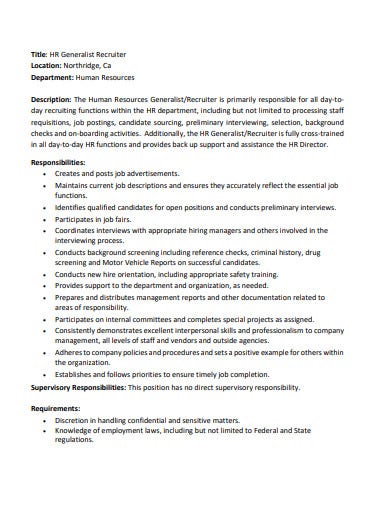
Managers should listen to employees' ideas and provide time for them to share their thoughts. They also make sure to keep their team updated on the organization's goals and vision. Managers who truly care about their employees' career advancement will show concern for their direct reports and encourage them to discuss their long-term career plans with them.
The qualities of a great manager
A manager who inspires and supports employees is a leader. They create a positive atmosphere at work. Good managers encourage employees to follow the company's vision. They are able to take quick, informed decisions. They listen to their employees and take steps to improve the workplace. These are the characteristics of a great manager.
Communication is an essential skill in management. Great managers can communicate clearly and concisely to employees and are open to sharing their thoughts and opinions with them. Regular communication with employees can foster trust and reduce conflict.
Communication skills
For any manager to succeed, they must be able to communicate effectively. Managers need to know how to make employees feel valued and create a positive workplace. There are many ways to improve these skills, including attending a writing workshop, taking an online business writing class, and reading a lot. Managers should also be trustworthy and empathic. This will allow them to build genuine relationships with their employees.

Communication skills are essential to any industry or business. A great manager must be able communicate clearly and listen to other points of view. Communication is key to employee motivation, collaboration, and increased productivity.
Self-awareness
Good managers need to be self-aware. It can help people develop as leaders, and can also have an impact on their team. The likelihood of internal conflict in teams that are led well by self-aware leaders is lower. They offer a forum for people to discuss the problems that they are having.
To improve your self-awareness, ask yourself two questions: what do your direct reports like about you? What do your direct reports dislike about you? You might be surprised at the answers. In the best case, they will give you some insight that will allow you to become a better leader.
Empathy
Empathy is difficult to learn and a rare trait that managers naturally possess. This is why many hard-working, smart leaders have found themselves in the business world without empathy. Managers who lack empathy are unable to build a collaborative work environment or relate well to the people who ultimately drive the company's results.
A good manager will demonstrate empathy. This is a key characteristic that makes a great manager. It will also benefit the employee as well as the company. Managers are often told to put their personal lives aside and that they should not interfere with the work of others. However, it is becoming increasingly difficult for managers to do so. Managers need to be able to see that employees also have problems at home. Managers can create an environment that encourages team members to feel supported and safe.

Adaptability
Managers must have adaptability as a key skill. It allows employees to be flexible and adapt to changes without losing their focus on their current projects. A good manager can use their problem-solving skills when facing a variety of difficulties to find solutions and actions. People who work with people with different personalities or who have to deal with conflicts need to be adaptable.
While change can often be frightening, it can also lead to innovation and creativity. Progress is not possible if you are afraid to take risks. Managers who embrace change are more open to new ideas and can avoid getting stuck in a routine.
FAQ
What is TQM, exactly?
When manufacturing companies realized that price was not enough to compete, the industrial revolution brought about the quality movement. They needed to improve the quality and efficiency of their products if they were to be competitive.
To address this need for improvement management created Total Quality Management (TQM) which aimed to improve all aspects of an organization's performance. It included continual improvement processes, employee involvement, customer satisfaction, and customer satisfaction.
What are some common mistakes managers make when managing people?
Managers can make their jobs more difficult than necessary.
They may not be able to delegate enough responsibility to staff or provide adequate support.
A majority of managers lack the communication skills needed to motivate their team and lead them.
Some managers create unrealistic expectations for their teams.
Some managers may try to solve every problem themselves instead of delegating responsibility to others.
What is Six Sigma?
It is a way to improve quality that places emphasis on customer service and continuous learning. The objective is to eliminate all defects through statistical methods.
Motorola's 1986 efforts to improve manufacturing process efficiency led to the creation of Six Sigma.
The idea spread quickly throughout the industry, and today, many organizations are using six sigma methods to improve product design, production, delivery, and customer service.
How do you define Six Sigma?
Six Sigma will most likely be familiar to people who have worked in statistics and operations research. Anyone involved in business can benefit.
It requires high levels of commitment and leadership skills to be successful.
Statistics
- Our program is 100% engineered for your success. (online.uc.edu)
- This field is expected to grow about 7% by 2028, a bit faster than the national average for job growth. (wgu.edu)
- Hire the top business lawyers and save up to 60% on legal fees (upcounsel.com)
- 100% of the courses are offered online, and no campus visits are required — a big time-saver for you. (online.uc.edu)
- The profession is expected to grow 7% by 2028, a bit faster than the national average. (wgu.edu)
External Links
How To
How can you create a Quality Management Plan, (QMP)?
QMP, which was introduced by ISO 9001:2008, is a systematic approach to improving products, services, and processes through continuous improvement. It is about how to continually measure, analyze, control, improve, and maintain customer satisfaction.
QMP is a standard way to improve business performance. The QMP aims to improve the process of production, service delivery, and customer relationship. QMPs should cover all three dimensions - Products, Processes, and Services. If the QMP only covers one aspect, it's called a "Process QMP". QMPs that focus on a Product/Service are known as "Product" QMPs. If the QMP focuses on Customer Relationships, it's called a "Product" QMP.
Scope, Strategy and the Implementation of a QMP are the two major elements. These elements are as follows:
Scope: This determines the scope and duration of the QMP. If your organization wishes to implement a QMP lasting six months, the scope will determine the activities during the first six month.
Strategy: This is the description of the steps taken to achieve goals.
A typical QMP has five phases: Planning (Design, Development), Implementation (Implementation), and Maintenance. Below is a description of each phase:
Planning: This stage identifies and prioritizes the QMP's objectives. To understand the expectations and requirements of all stakeholders, the project is consulted. The next step is to create the strategy for achieving those objectives.
Design: During this stage, the design team develops the vision, mission, strategies, and tactics required for the successful implementation of the QMP. These strategies can be implemented through the creation of detailed plans.
Development: Here the development team works toward building the necessary resources and capabilities to support the successful implementation.
Implementation: This is the actual implementation and use of the QMP's planned strategies.
Maintenance: This is an ongoing procedure to keep the QMP in good condition over time.
Several additional items should be added to the QMP.
Stakeholder Involvement: Stakeholders are important for the success of the QMP. They are required to actively participate in the planning, design and development of the QMP, as well as the implementation and maintenance phases.
Project Initiation: It is essential to have a clear understanding about the problem and the solution before you can initiate a project. Also, the initiator should understand why they are doing it and what they expect.
Time Frame: This is a critical aspect of the QMP. For a short time, you can start with the simple version of the QMP. For a long-term commitment you may need more complicated versions.
Cost Estimation: Cost estimation is another vital component of the QMP. Planning is not possible without knowing the amount of money you will spend. Therefore, cost estimation is essential before starting the QMP.
QMPs are not just a written document. They should be a living document. It changes with the company. It should be reviewed regularly to ensure that it meets current needs.